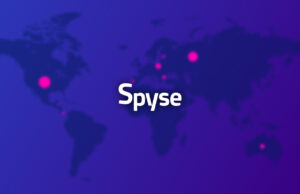Protect Yourself Against Scam Calls With These Simple Tips

Every year, thousands of people are the victim of some kind of phone scam. And every year, innocent people lose millions of dollars. And the problem is getting worse. As security systems get better at protecting data online, scammers are having to go back to old-fashioned methods. The easiest way to hack your bank account isn’t by finding weaknesses in your online banking. It’s brazenly getting you to give out the information the scammer needs.
The following are some helpful tips to protect you against the scammers. Let’s get started.
Get Your Service Provider On Side
Most people are under the impression that there isn’t much that service providers can do to stop spam calls. After all, wouldn’t they have done that already? But some service providers are able to block numbers from reaching you. The problem, of course, is that scammers often use a lot of numbers. And this means that if providers are going to deal with the problem, they have to blacklist those numbers too. Often scammers only use numbers for a few weeks and then move on. So this creates an administrative nightmare for the providers.
Use Blocking Features On Your Phone
The other option is to use the blocking feature on your phone. Most modern smartphones come with an option to block certain incoming numbers. But again, you may have to have some patience. Blocking one number isn’t necessarily enough to stop all the calls from coming through.
Check The Origin Of The Number
Often you’re able to find out all you need to know about a number, just from the number itself. Telephone codes can tell you a lot about whether a call is legitimate or not. If you’re getting a call from the area in which you live, then it’s probably OK. But if you’re getting calls from out of the country or from areas you have no connection with, they’re probably not legitimate.
Don’t Call Back
Calling a number you haven’t seen before back is generally a bad idea. Why? Well, first of all, you run the risk of paying a premium rate. Often scammers will use premium telephone codes to get you to pay for the call. Some of that money ends up with the service provider, and some with the scammers themselves. But secondly, you also run the risk of sharing information you didn’t intend to. The best thing to do is to find out whether the number is legitimate by visiting the company website. Then you can call back on your own terms to find out whether it’s something important.
Never Share Any Information
As discussed, many scammers now prefer call and email scams because they’re easier to pull off. You don’t need any technical computer knowledge, just a gift of the gab. If you do end up taking a call from an unknown number, remember not to give out any personal information. If you’re already with a business, you needn’t give out anything that might represent your ID. After all, the company already has all that information.













 © 2024
© 2024
0 comments